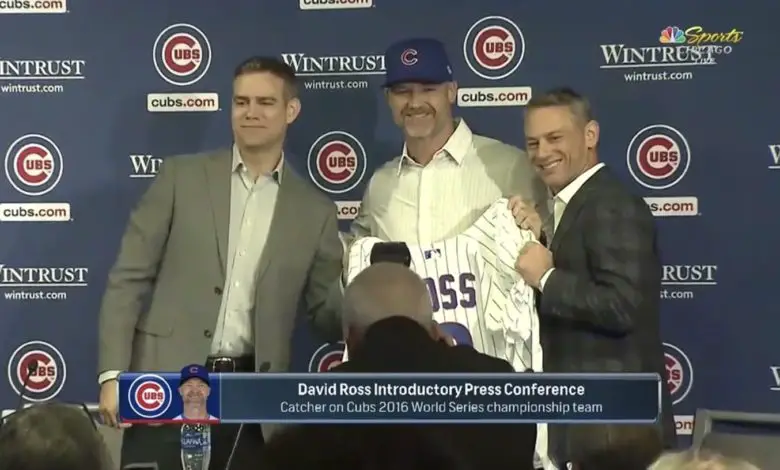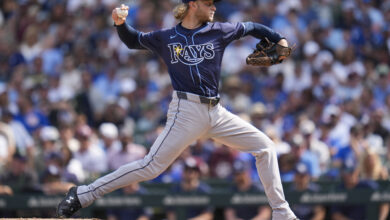
Cubs Making Widespread Organizational Changes to Athletic Training Staff, Mental Skills Department
As further confirmation of what we’d assumed last week about the departure of strength and conditioning coach Tim Buss, the Cubs are making sweeping changes to their athletic training staff and mental skills program. Bleacher Nation’s Bryan Smith tweeted that they’d be overhauling the training infrastructure just as they had the pitching and hitting areas, and multiple reports from the past two days back that up with several specific moves.
Per Bruce Levine of 670 The Score, casualties of the organizational shift include assistant athletic trainer Matt Johnson, massage therapist Laura Paluch, and yoga instructor Christine Schwan. Johnson had spent nearly two decades with the Cubs, the last eight of which came with the big league club. Paulich and Schwan had been in their roles for four and two years, respectively.
Patrick Mooney and Sahadev Sharma of The Athletic — quite the apropos name in this instance — added that minor-league strength and conditioning coordinator Doug Jarrow has been reassigned within the organization ($). Their report also included the departure of metal skills director Josh Lifrak, a move that was not presented as being mutual.
Mental skills coordinator Rey Fuentes has accepted a role with the Red Sox, while fellow mental skills coordinators Bob Tewksbury and John Baker remain with the Cubs and “will continue to work closely with the major-league club.”
While this may look like a very sudden shift on the surface, these moves were set in motion last January when the Cubs hired Adam Beard as director of high performance. According to the team’s press release at the time, Beard was “responsible for overseeing the integration and management of a collaborative approach to all aspects of training, conditioning, mental skills, nutrition, sport science and beyond.” His first year on the job no doubt included a blunt assessment of the people and practices across the organization.
The winner’s trap Theo Epstein talked about during his end-of-season press conference isn’t just about the types of players the Cubs have stockpiled, it’s about how they’ve gone about developing them at every level. Bringing in an outsider like Beard was a way to get a fresh perspective on the situation and it aided the Cubs in making some of the hard decisions they might not have been capable of otherwise.
That includes moving on from Buss, who was easily one of the most beloved figures in the clubhouse among players and fans alike. But while his thong-clad antics certainly lightened the mood around spring training, the Cubs have made it pretty clear that they’re moving in a more serious direction under David Ross. It probably didn’t help Buss’s case that nagging injuries and general late-season malaise reflected poorly on the team’s conditioning practices.
Lifrak’s departure is more unexpected given how much emphasis the Cubs have placed on their mental skills acumen since hiring him away from IMG Academy five years ago. The realization that chemistry and mental preparedness provided an incremental edge that aided in winning was a big part of the Cubs’ ascent during the change from rebuild to would-be dynasty. But team chemistry appears to have waned over the past two seasons and perhaps Beard chose to take more direct control over the MSP while retaining members of Lifrak’s staff.
The ideal result of all this organizational restructuring is a renewed sense of purpose and a revamped set of procedures that leverage every last ounce of talent throughout the system. That’s going to be necessary if the Cubs expect improved results without increasing the baseball budget to achieve them. In other words, they’re hoping they can win and develop players by keeping a much closer eye on both the accountability and the accounting.
So if you’re one of the many fans still seem to be holding out hope that Tom Ricketts was simply playing coy when he pooh-poohed big spending while making the media rounds last week, you’re probably in for a rude awakening this winter. By all accounts, the man holding the purse strings isn’t simply keeping his cards close to the vest to partially neuter the likes of Scott Boras.
While perhaps not the most obvious bellwether, the choice to decline Kendall Graveman’s $3 million option is a sign that the Cubs are very conscious of their budget. What seems to be very clear, however, is that the team is not stockpiling every additional dollar for a run at one of the market’s top available stars. As read in The Athletic, “What the Cubs really need is more good players…[but] spending on big free agents like Cole or Anthony Rendon just doesn’t appear to be in the cards for this team this winter.”
Between ownership’s words and the personnel decisions we’ve seen so far, it’s becoming obvious that the Cubs are seeking a more alchemic solution to their woes rather than just investing in gold. Perhaps that’ll end up working out, since Ricketts has lamented that “the correlation between spending and winning is not nearly as strong as we’d like it to be.”
Thing is, I’m pretty sure the correlation between spending on the best pitcher in baseball and winning is pretty damn strong.

